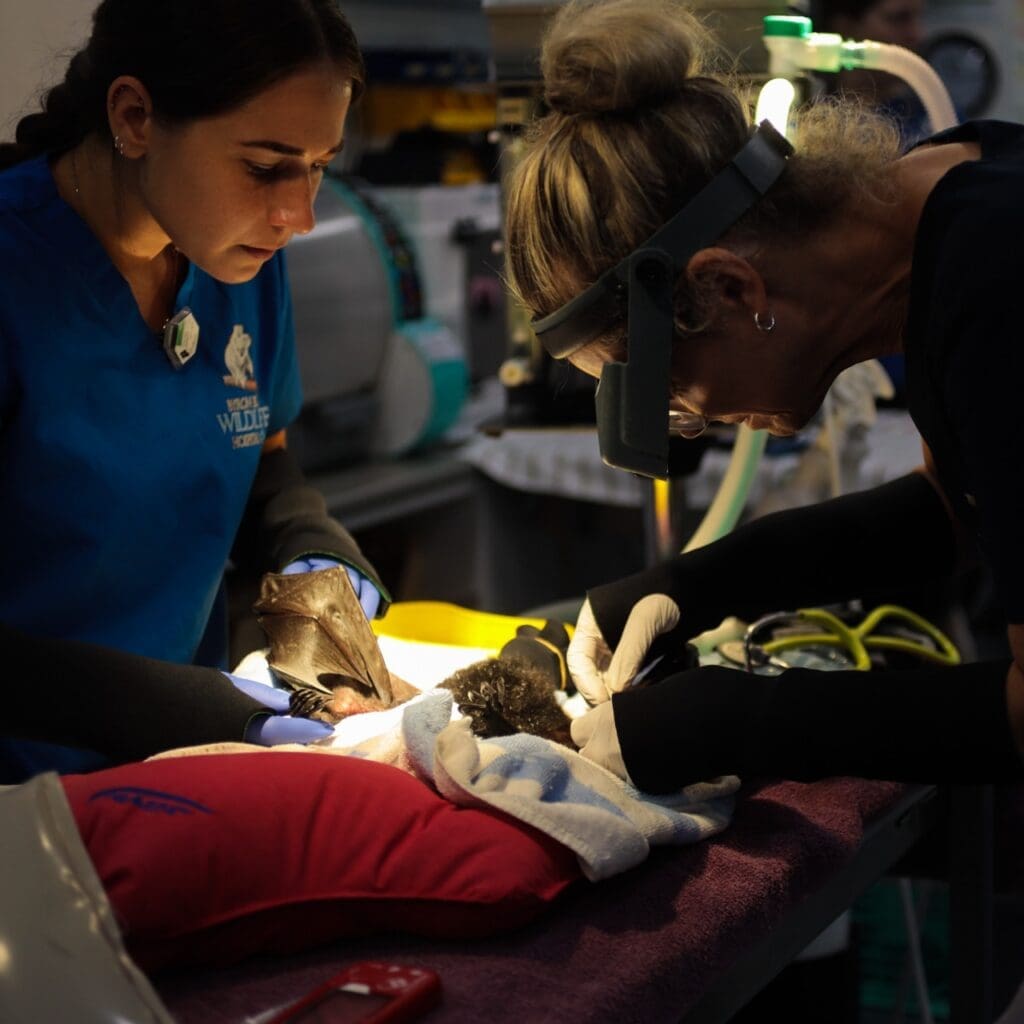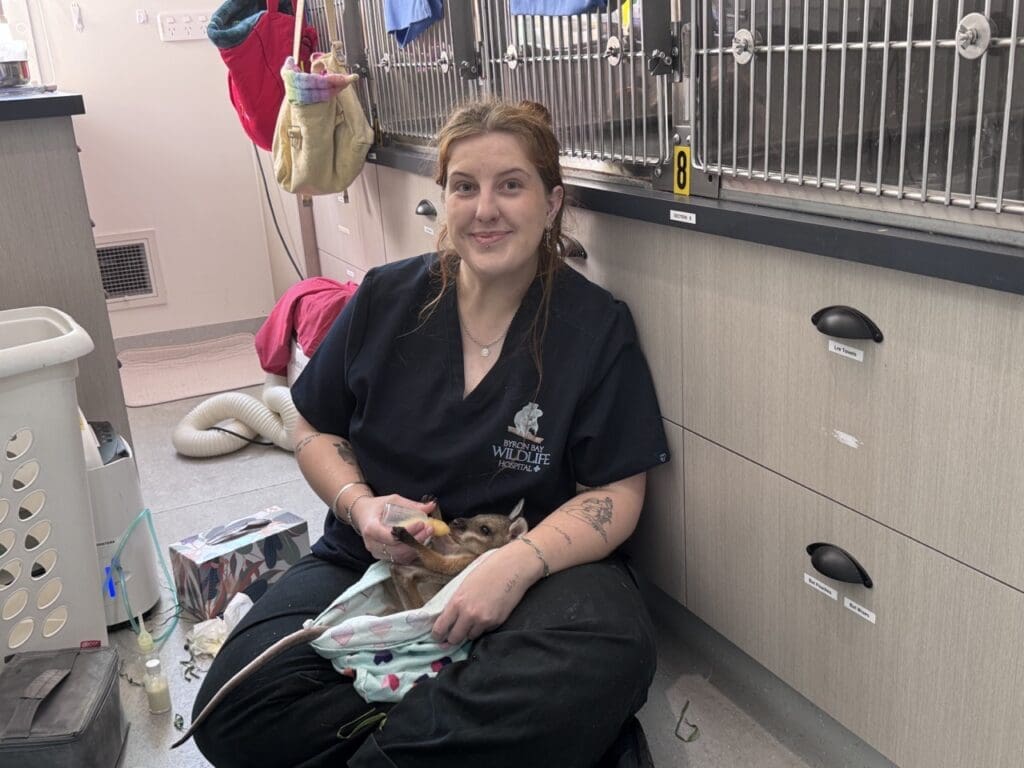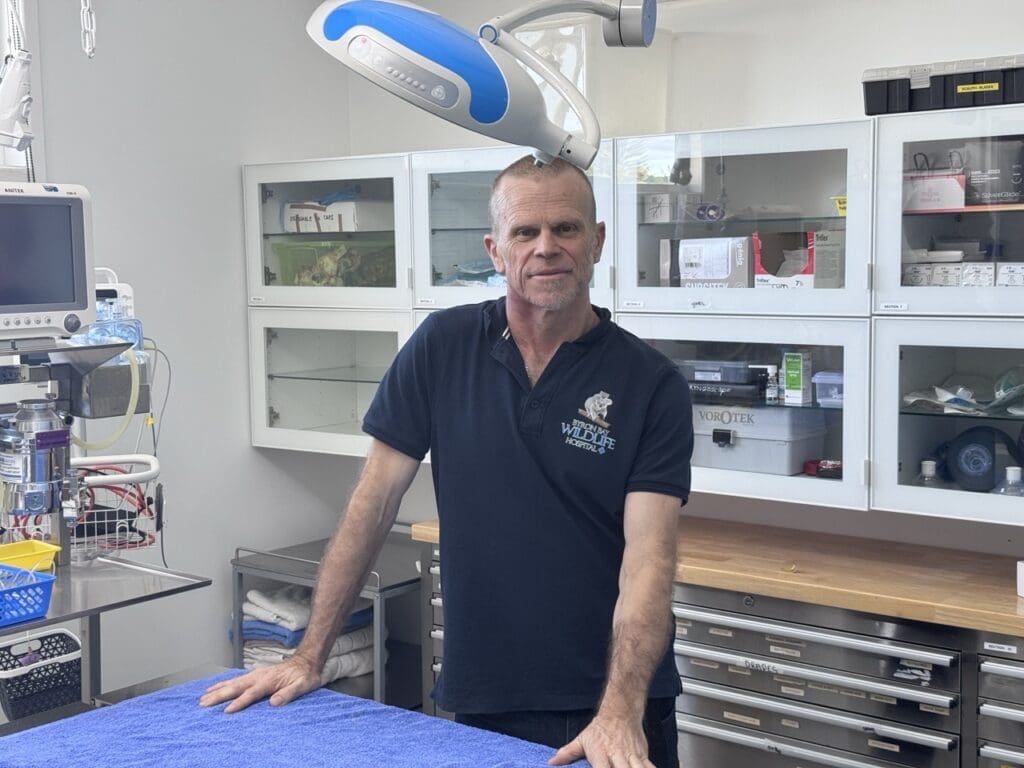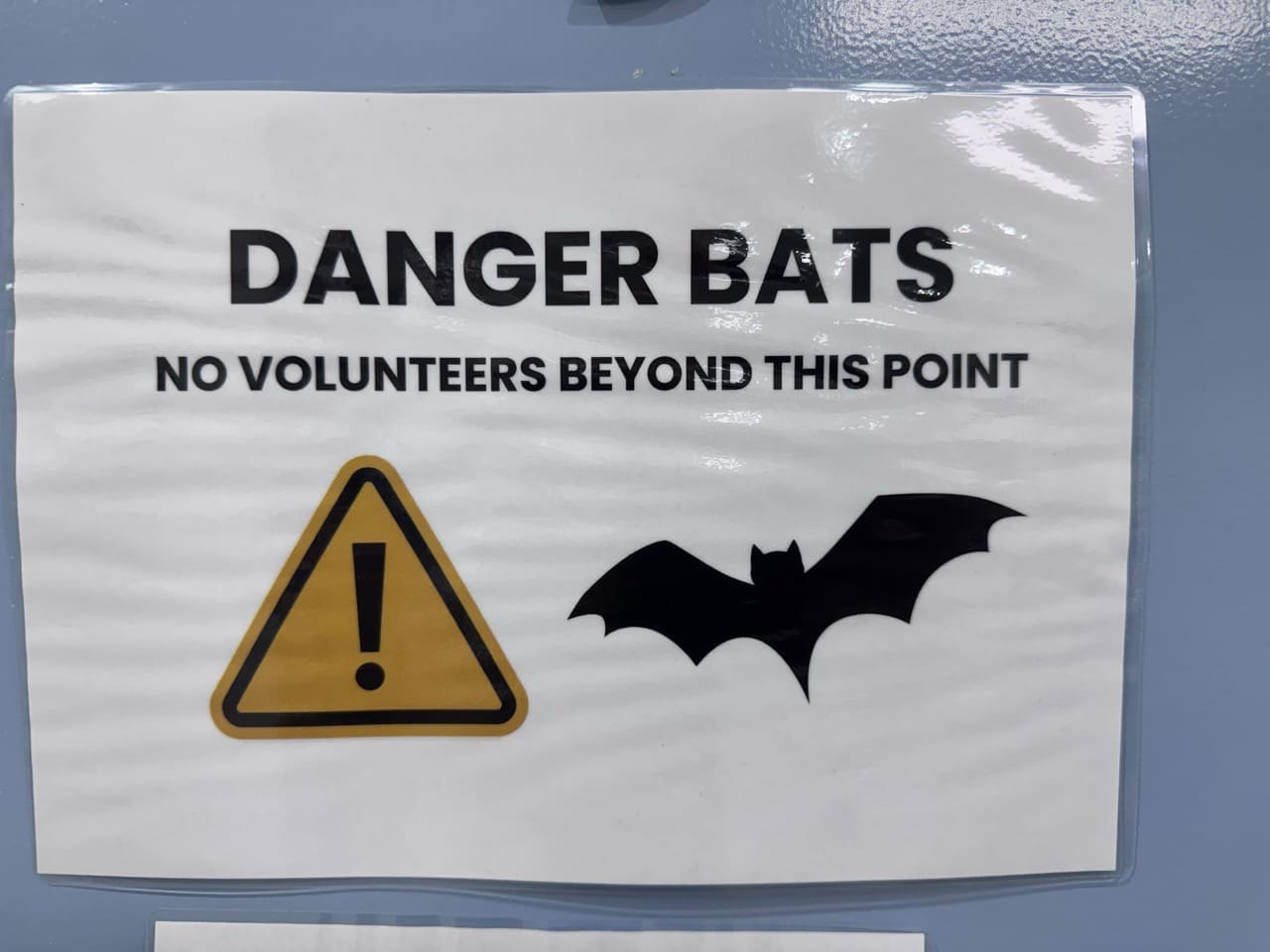Bats are perhaps among the most misunderstood critters living among us. To many, they are noisy, messy and even dangerous.
That fear was sharpened following the death of Ballina man Craig Nolte two months ago, who became the first NSW victim of the Australian bat lyssavirus.
Now NSW Health has issued a public warning urging people not to touch flying foxes or microbats, after large numbers of sick or dying animals started being taken to local wildlife hospitals over recent weeks.
The Byron Bay Wildlife Hospital, now operating from its new Lennox Head headquarters, is taking every precaution, including keeping the bats in complete isolation.

What’s Causing the Deaths?
Test results back this week show the deaths may not in fact be caused by disease, but rather from starvation.
Vet nurse Maddy Meredith says most are “first flyers” – young bats from the last breeding season that are failing to find enough food.
“We’ve had reports from Evans Head, Ballina, Lennox and Byron,” Ms Meredith said.
“A lot have been found under fig trees and palms. When we’ve sent some away for testing, the results showed emaciation, not viruses.”
Carers say unseasonably wet weather may be reducing available food sources, forcing bats into unusual behaviour.
Colonies are hanging lower in trees, aggressively guarding fruit, and spreading into unfamiliar feeding areas.
Despite their reputation, bats are vital to local ecosystems.
The Northern Rivers is home to three species of flying fox – black, grey-headed and little red – all of which pollinate forests and provide food sources for other wildlife, including endangered koalas.

“They’re intelligent animals and one of the most important pollinators we have,” Ms Meredith said.
“Without bats, whole food chains would collapse.”
For carers, though, bats are more than vital workers of the night sky – they are deeply endearing.
Animal-lover Maddy Meredith admits they’re a favorite of hers too.
“They are placental mammals, just like humans, with a strong maternal bond,” she said.
“They like to cuddle, and they look for comfort just as they would from their mothers when orphaned.”
A Growing Hospital Network
The Lennox Head hospital, previously home to the local vet clinic, has been transformed into a permanent medical base for the not-for-profit organisation Wildlife Recovery Australia.
Its operations include the mobile hospital Matilda, based at the Tintenbar wildlife park and recovery centre, as well as a specialist raptor recovery centre at Byron Bay.
General Manager Russell Mills, who has been with the organisation since its earliest days, said the Lennox site marked a milestone for the service.
“It’s been inspiring to see the community get behind us,” he said.
“We started with nothing but an idea and now we’re providing world-class care for wildlife seven days a week.
“We’ve treated more than 10,000 wildlife patients since we began.”
While mostly (and proudly) Ballina Shire-based these days, Mr Mills says the Byron branding has stuck as the reputation of the operation has grown.
“With the mobile clinic, we have the ability to go around NSW and respond in times of crisis such as bushfires, while the clinic in Lennox means we can help meet the constant and growing demands for wildlife care here in our region.”

Public Safety First
NSW Health has repeated its warning that the public must not touch bats, even if they appear injured.
Instead people are urged to call the experts: WIRES (1300 094 737) or Northern Rivers Wildlife Carers (02 6628 1866).
“Although it may be difficult to ignore the plight of an injured or sick animal, we urge residents not to touch or attempt to cover any bat they might come across,” North Coast Population and Public Health Director Dr Valerie Delpech said.
Anyone scratched or bitten should wash the wound thoroughly with soap and water for at least 15 minutes, apply antiseptic, and seek immediate medical care.
Lyssavirus, which is related to rabies, requires immediate antiviral treatment as there is no cure once symptoms appear.
How to Help
For those who want to get involved or learn more, the Byron Bay Wildlife Hospital is holding an Open Day at its Lennox Head facility on October 9.
The annual hospital fundraiser Wild Aid, this year featuring the Hoodoo Gurus, is coming up on Saturday September 27 at Byron Bay. Tickets are available via Moshtix.
“Events like this keep us going,” Mr Mills said. “Every ticket sold helps us save sick and injured wildlife – bats included.”



0 Comments